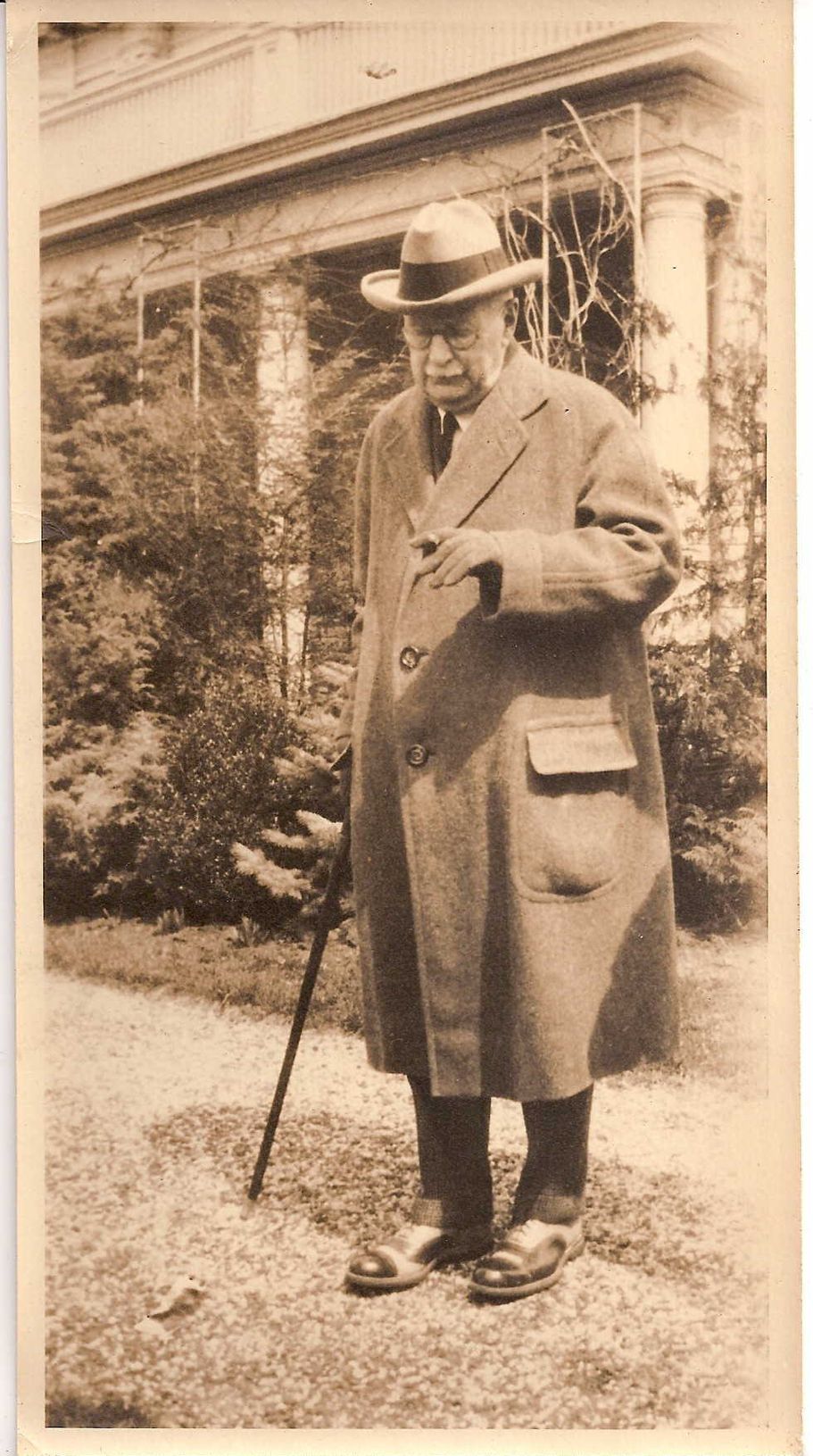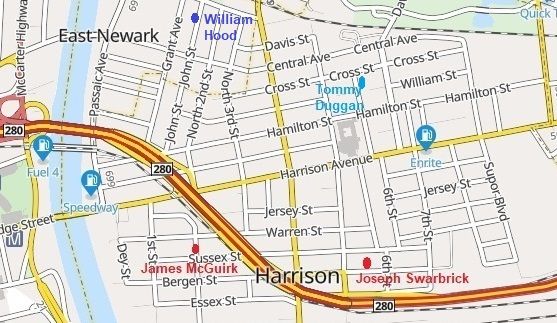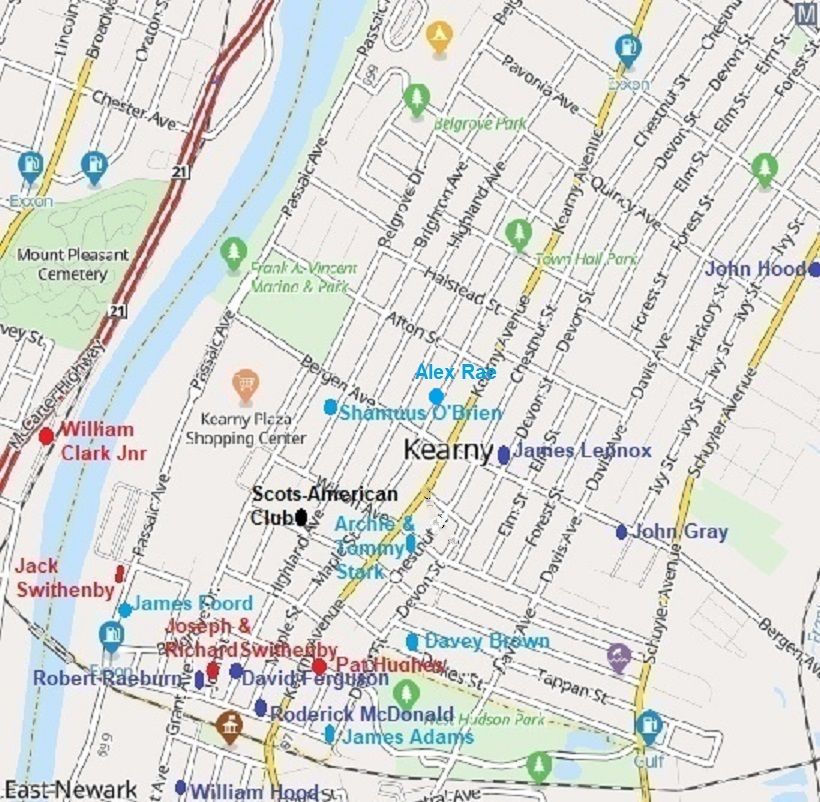Note: This page, indeed the whole site, is the result of three and more years' work, a very large part completely original. So, if you are seeking source material for articles or programmes for the coming World Cup and are minded to try to rip us off, don't. Talk to us, ask us politely before putting pen to paper or film in camera, make an agreed donation to our group's funds, which we will use to promote proper Scottish football history and preservation and all can be happy. Otherwise do your own research or, as we have already not least with the BBC (Everybody's at it), you will be taken to task.
The "Scotstoun" Trail
(Kearny plus Paterson)
(Remember: No Scots, No Soccer)
The town of Kearny in New Jersey has two epithets, both deserved and both followed by the initials USA and, more than likely, a wild but silent ye-ha. They are Scots-Town and Soccer-Town, in that order chronologically, indeed with the latter derived unquestionably from the former with the genesis in a cotton-thread mill erected there from 1875. However, the mill was not any old one. It too had sources, one, the Clarks, the industrial, indeed industrious, family that provided the funding and original expertise, and Paisley in Renfrewshire, the hometown both of that family and many of the workers, who were sent and attracted to the new, New World facility.

And continuing the chain of causality it was from that Diasporan-Scots mill that two of the earliest football clubs in America, Kearny Rangers and Clark's ONT, members from inception of both of the first American Football Association, were to emerge. Indeed ONT, founded in 1883 and initially captained by another if unrelated Paisley Clark, William Clark, (Left), one of the founding fathers of "American Soccer", was in 1885 to take the first playing of the American Cup. It was also to win the next two, defeating Kearny Rangers in both finals.
And Kearny's association with "the beautiful game" has continued ever since with Scots-Americans a team there to this day, indeed the Scots-American Social Club, formed in 1895 and on Patterson St., is still at the heart of its now more diversified cultural life. From the 1890s it was to become a place where emigrant Scots footballers would settle, notably Jimmy Adams, the causer in a game for Hearts against East Stirlingshire of the introduction of the penalty-kick. In the 1910s it would begin to produce real players of its own - Glasgow-born Archie and Tommy Stark, Davey Brown, Kearny-born of Scots parents - who would go on to be stars of the 1920s boom in the US game. And even in the years of the Depression of the 1930s it kept the light shining, whilst it faded to almost extinction elsewhere. It meant that in the post-World War era there was a base, from which to stutter several times but grow. It did not provide players to the American squad that would defeat England at the 1950 World Cup but would do so to the next time the USA was to qualify in 1990 and and again in hosting in 1994. In fact it was to have produced much of the spine on-field with in goal Diasporan-Italian, Tony Meola, and in mid-field, John Harkes, Diasporan-Scot, and Tab Ramos, Diasporan-Uruguayan, the El Yoni of the team all raised in the town, coming through its youth systems.

Paterson Whilst Kearny was in the early decades of soccer the centre of the game, at least in New Jersey, it did have competition in the silk- rather than cotton-spinning town of Paterson, with a single "t", just thirteen miles to the north. Here too there were from the beginning teams and players of Scots origin. The first playing of the American Cup included Paterson Thistles. Later there were the Rangers and the True Blues and throughout the decade and a half of the first iteration of the the trophy the Turner family of Newmilns in Ayrshire and others were prominent on-field, officiating and as administrators.
Paterson
Clubs
Back to SFHGHome page
